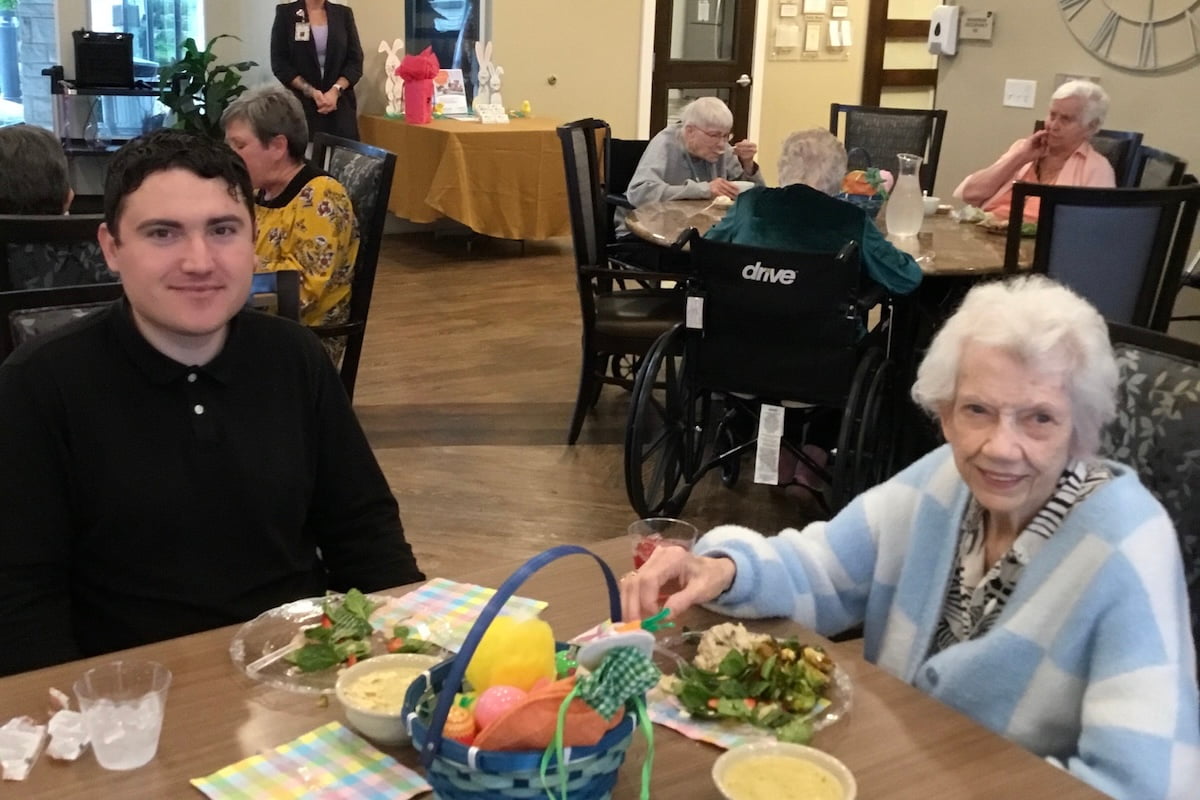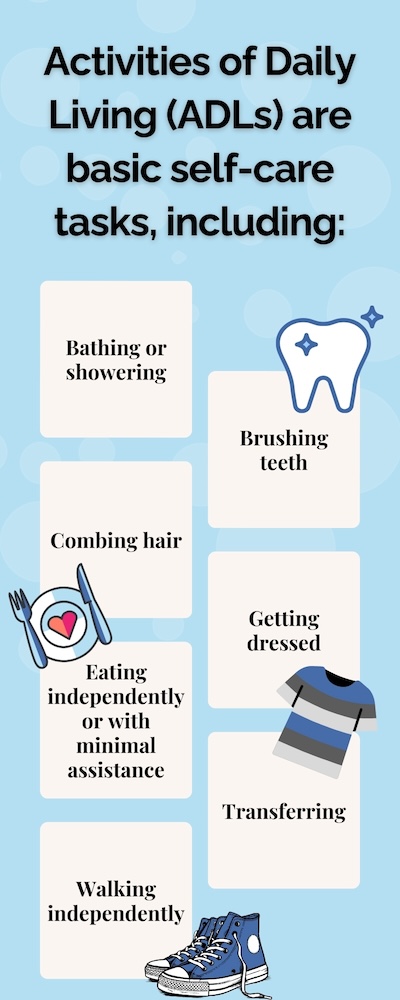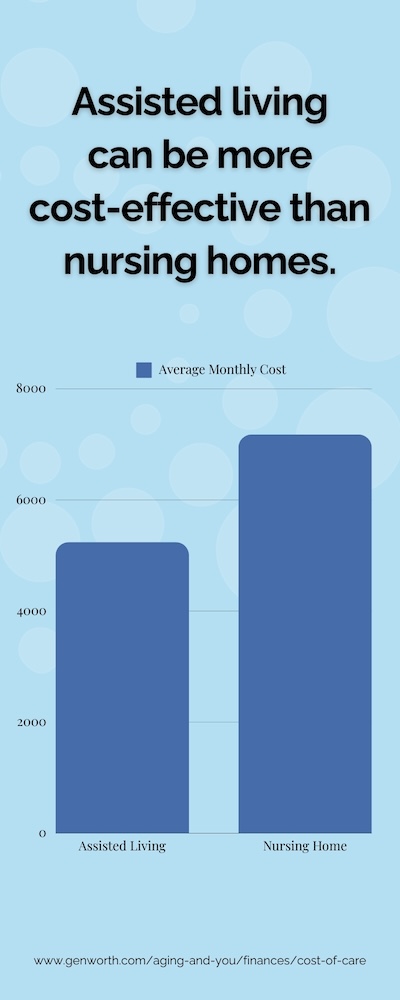As families begin the journey of finding suitable living arrangements for aging loved ones, they often encounter misconceptions about senior care options. These myths can cloud your judgment and lead to misguided decisions, causing unnecessary stress and confusion. It can also waste valuable time.
You may be familiar with some of the more common myths about nursing homes—some may have even led you down the wrong path. Long Creek Assisted Living and Memory Care offers senior care in Sunnyvale, Texas, and we’re glad to clarify things. The time to separate fact from fiction is now with knowledge to guide your all-important decisions about senior care.

Typical Myths About Nursing Homes
Unveiling misconceptions surrounding nursing homes is essential for informed decision-making. Debunking the stereotypes reveals the nuanced reality of nursing home care.
1. Nursing Homes Are the Only Option: Contrary to popular belief, nursing homes are just one of many senior care options available. While they provide round-the-clock medical care for those with complex health needs, assisted living communities offer a more independent lifestyle with personalized support services.
2. Nursing Homes Are Less Costly Than Other Senior Communities: Nursing home care can be costly, and for seniors with limited financial resources, alternative care options may be more financially feasible. While some nursing homes offer financial assistance programs or accept government funding, access to these resources may be limited, and accessibility can be a significant barrier for some individuals.
3. Nursing Homes Are Appropriate for Seniors with Specific Cultural or Dietary Preferences: Nursing homes may have limitations in accommodating specific cultural or dietary preferences due to standardized meal plans and routines. Seniors with these concerns may find adhering to their lifestyle choices challenging in a nursing home setting.
4. Nursing Homes Are Best for Seniors with Dementia: Nursing homes may not be ideal for individuals with dementia due to potential challenges in providing tailored care and maintaining a stimulating environment. These facilities may lack specialized dementia care programs, leading to inadequate support for cognitive decline. Additionally, the communal living setting and unfamiliar surroundings can exacerbate confusion and anxiety, impacting the overall well-being of those with dementia.
Misconceptions About Assisted Living and Memory Care:
Next, we delve into senior care myths involving misconceptions about assisted living and memory care. They are also specialized communities, but they offer flexible lifestyle options for individuals and varying support levels.
The Truth About Assisted Living
Assisted Living is Just “Nursing Home Light”: Contrary to this belief, assisted living communities offer more independent lifestyles with personalized care assistance. Residents maintain autonomy while receiving support with daily tasks, like medication management and personal care, for a sense of independence and dignity.
Assisted Living is Only for Seniors with Severe Health Issues: While some residents may have health concerns, many individuals choose assisted living for companionship, convenience, and a feeling of protection. These communities cater to a wide range of needs with social activities, amenities, and personalized services.
Assisted Living Means Loss of Independence: Assisted living promotes independence by offering assistance with activities of daily living (ADL) that have become challenging. Residents can maintain control over their lives, participate in decision-making, and engage in community activities.
Assisted Living is Expensive and Financially Draining: While costs vary, many assisted living communities offer pricing options and financial assistance programs to accommodate different budgets. Compared to the expenses of home maintenance, utilities, and healthcare services, assisted living can be a cost-effective solution that provides comprehensive care and amenities.
Assisted Living is Lonely and Isolating: Assisted living communities promote socialization and engagement through planned activities, outings, and communal dining. Residents have ample opportunities to form friendships, connect with peers, and participate in events that enrich their lives, combating feelings of loneliness and isolation often associated with aging.
The Truth About Memory Care
Memory Care Communities Are Like Nursing Homes: Memory care communities provide specialized care tailored to individuals with Alzheimer’s disease and other forms of dementia. These communities offer a supportive environment designed to enhance residents’ quality of life and independence while addressing their unique cognitive needs.
Memory Care Communities Are Strictly Medical Facilities: While memory care communities offer protected environments and medical support, they also prioritize residents’ emotional well-being and engagement. These communities provide a range of therapeutic activities and programs designed to stimulate cognitive function, promote social interaction, and maintain a sense of purpose and dignity for residents.
Memory Care Residents Are Always Confused and Agitated: While some residents may experience confusion and agitation due to their condition, memory care communities employ specialized techniques and trained caregivers to minimize these symptoms. Residents can experience a sense of security, comfort, and familiarity through personalized care plans and supportive interventions.
Memory Care Is Only for Advanced Stages of Dementia: Memory care communities cater to individuals at all stages of dementia, from mild cognitive impairment to advanced Alzheimer’s. By providing early intervention and specialized care, these communities help individuals maintain their cognitive function, prolong independence, and improve their overall quality of life.
Memory Care Communities Are Depressing and Isolating: Memory care communities prioritize socialization and engagement to combat feelings of loneliness and isolation. The structured activities, group therapies, and supportive environments help residents connect with peers. They have opportunities to build relationships and enjoy meaningful experiences that enhance their emotional well-being and sense of belonging.
Long Creek Offers Exceptional Senior Care in Sunnyvale:
When it comes to senior care in Sunnyvale, TX, families might find the decision-making process overwhelming. Now that you understand the common myths about nursing homes and other communities, the process can be more streamlined.
Our community stands out as a premier choice for Sunnyvale senior care. We offer a warm, inviting environment where residents receive personalized assistance with daily tasks while maintaining their independence. With dedicated memory care programming at The Cottage, compassionate team members, and a range of amenities, we ensure that each resident receives the highest quality of care and support tailored to their individual needs.
This is How Sunnyvale Senior Care is Supposed to Be
Experience peace of mind knowing your loved ones are in good hands at Long Creek Assisted Living and Memory Care. Ensure they receive the exceptional care they deserve. Contact us, and we’ll set up a personalized tour for you and your loved one!





